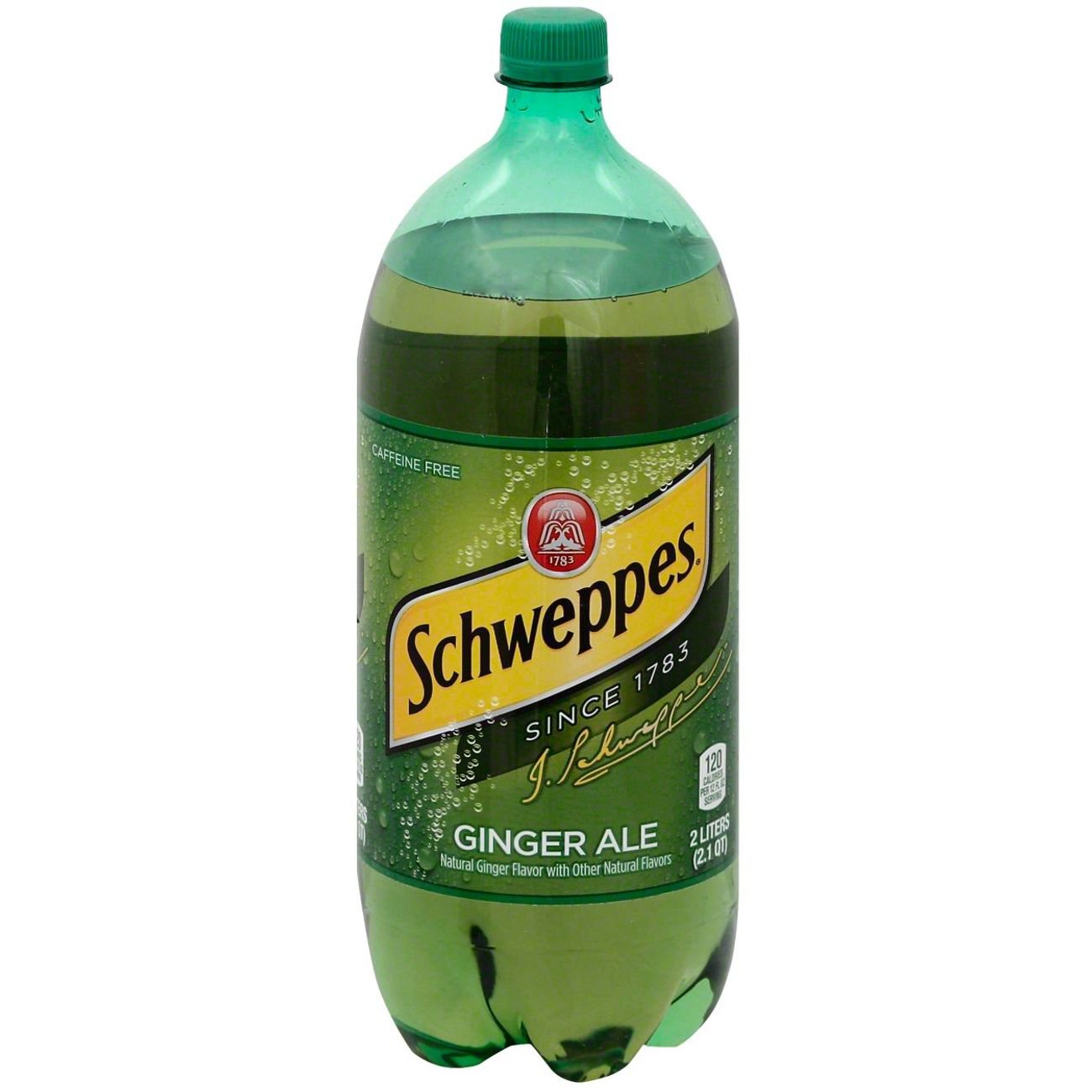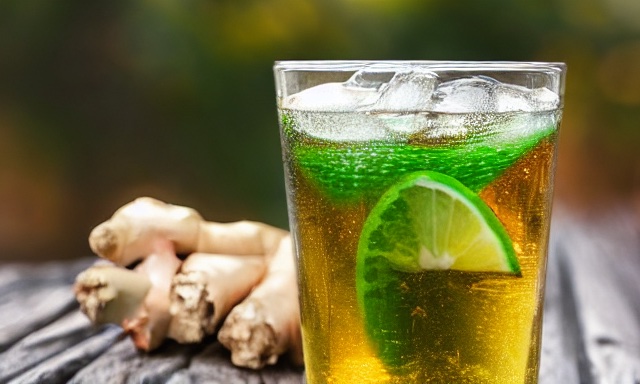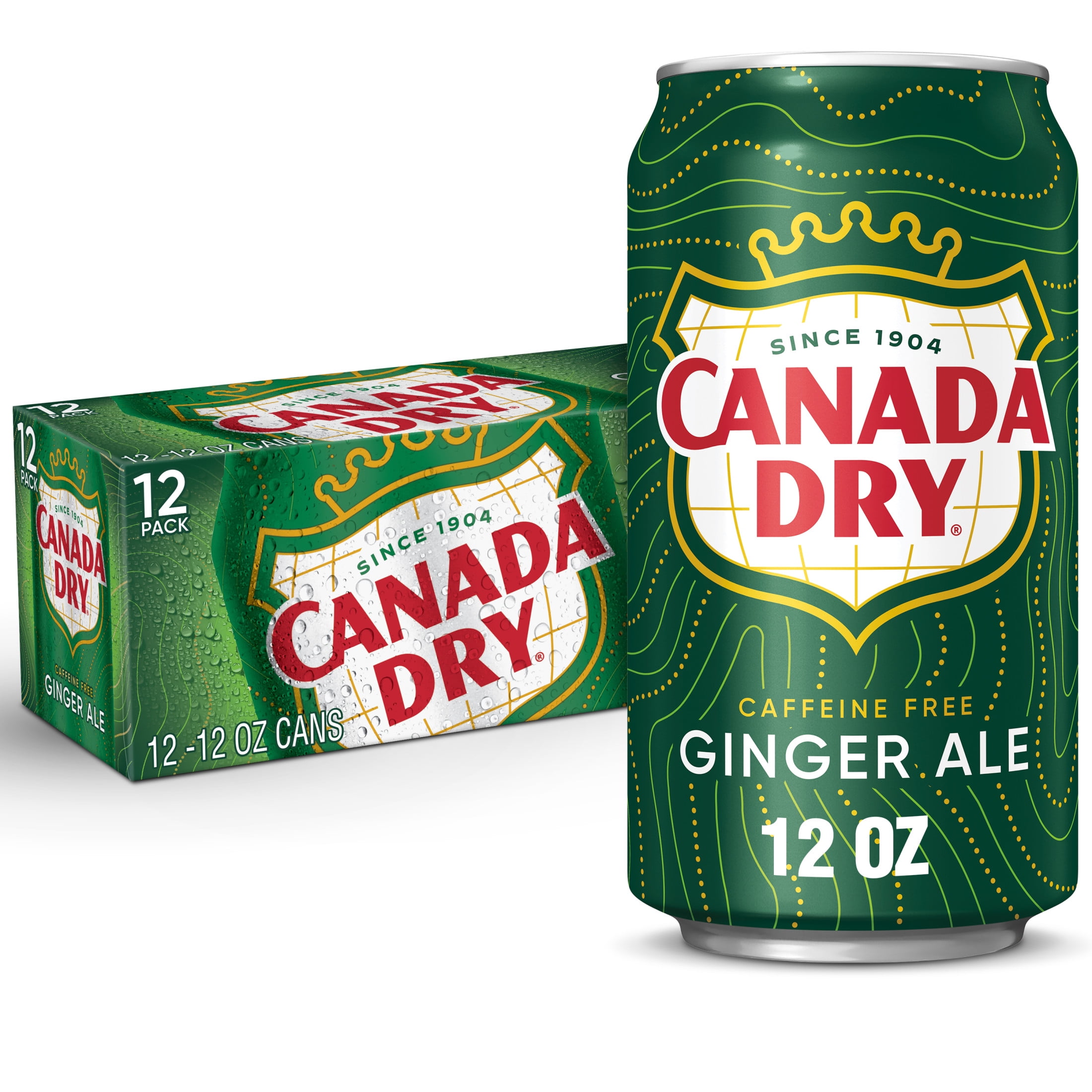No, ginger ale does not have caffeine. Most ginger ale brands are caffeine-free.
Ginger ale is a popular, fizzy drink enjoyed by many. It has a sweet, spicy flavor from ginger root. People often wonder if it contains caffeine like some sodas. Knowing what is in your drink is important. Some worry about caffeine’s effects, like trouble sleeping or feeling jittery.
In this blog post, we will explore the ingredients in ginger ale. You will learn how it compares to other sodas and beverages. Whether you drink ginger ale for its taste or for an upset stomach, understanding its content can help you make informed choices. Stay with us to find out more about this refreshing drink.

Credit: www.heb.com
Introduction To Ginger Ale
Ginger ale is a popular soft drink enjoyed by many people worldwide. It has a distinct ginger flavor that sets it apart from other sodas. But does ginger ale have caffeine? To answer this question, let’s start by exploring what ginger ale is and its fascinating journey.
Origins And History
Ginger ale dates back to the 19th century. It originated in Ireland and was created by an apothecary named Thomas Joseph Cantrell. The original recipe included ginger, sugar, and carbonated water. This made it a refreshing and unique beverage. Over time, ginger ale spread across Europe and North America. It became a favorite drink due to its pleasant taste and potential health benefits.
Popularity And Uses
Ginger ale is enjoyed both as a standalone drink and as a mixer. It is often used in cocktails and mocktails, adding a spicy kick. People also drink ginger ale for its soothing effects on the stomach. Many believe it helps with nausea and indigestion. This makes it a go-to drink for travel and after meals.
Today, ginger ale is available in many varieties. Some brands offer traditional versions, while others provide flavored options. Despite these variations, the core ingredients of ginger, sugar, and carbonated water remain the same. Understanding these basics helps answer whether ginger ale has caffeine.

Credit: foodzilla.io
Common Ingredients In Ginger Ale
Ginger ale is a popular carbonated beverage enjoyed by many. It is loved for its light, refreshing taste and potential health benefits. Understanding its common ingredients can help you make informed choices about your drink. Let’s dive into the primary components of ginger ale.
Natural Ingredients
Many brands of ginger ale pride themselves on using natural ingredients. These ingredients contribute to the overall flavor and experience. Here are some common natural components:
- Ginger Root Extract: Provides the characteristic spicy flavor and aroma.
- Carbonated Water: Adds the signature fizz and makes the drink refreshing.
- Cane Sugar or Corn Syrup: Sweetens the beverage. Some brands use natural sweeteners like honey.
- Citrus Extracts: Adds a hint of citrusy freshness, often from lemon or lime.
Brands focusing on natural ingredients often market themselves as healthier options. They appeal to those looking for fewer artificial components in their drinks.
Artificial Additives
While natural ingredients are preferred, some ginger ales contain artificial additives. These are included to enhance flavor, color, and shelf life. Common artificial additives include:
- Artificial Sweeteners: Used instead of natural sugars. Examples include aspartame and sucralose.
- Preservatives: Ensure a longer shelf life. Sodium benzoate is a typical preservative.
- Artificial Flavors: Enhance the ginger taste without using actual ginger extract.
- Coloring Agents: Provide a consistent and appealing color. Caramel color is frequently used.
Artificial additives may not appeal to those seeking a natural beverage. They can, however, make ginger ale more affordable and longer-lasting.
Whether you prefer natural ingredients or don’t mind artificial additives, knowing what goes into your ginger ale helps you make better choices. Always check the ingredient list to find the option that suits your preferences.
Caffeine Content In Ginger Ale
Many people enjoy ginger ale for its refreshing taste. But is this popular beverage caffeinated? Understanding the caffeine content in ginger ale can help you make informed choices. Let’s explore the typical composition of ginger ale and compare it with other beverages.
Typical Composition
Ginger ale is a carbonated soft drink made with ginger root, sugar, and water. Most brands do not add caffeine to their ginger ale. This makes it a great choice for those avoiding caffeine. Here’s a breakdown of the typical composition of ginger ale:
| Ingredient | Presence |
|---|---|
| Ginger Extract | Yes |
| Carbonated Water | Yes |
| Sugar | Yes |
| Caffeine | No |
Comparison With Other Beverages
How does ginger ale compare with other drinks in terms of caffeine content? Here’s a quick comparison:
- Coffee: Contains around 95 mg of caffeine per cup.
- Black Tea: Contains about 47 mg of caffeine per cup.
- Cola: Contains approximately 34 mg of caffeine per can.
- Ginger Ale: Typically contains 0 mg of caffeine per can.
As you can see, ginger ale stands out as a caffeine-free option. This makes it suitable for all ages and those avoiding caffeine. Enjoy a refreshing glass of ginger ale without worrying about caffeine.
Health Implications Of Ginger Ale
Ginger ale is a popular carbonated drink made from ginger root. Many enjoy its refreshing taste. But what about its health effects? This section dives into the benefits and potential risks of ginger ale.
Benefits Of Ginger
Ginger, the main ingredient in ginger ale, offers several health benefits:
- Anti-inflammatory properties: Ginger can reduce inflammation in the body.
- Digestive aid: Ginger helps soothe the stomach and promotes digestion.
- Nausea relief: Ginger is effective in reducing nausea and vomiting.
- Antioxidant effects: Ginger contains antioxidants that combat oxidative stress.
These properties make ginger ale a potentially beneficial drink. But, it’s essential to consume it in moderation.
Potential Risks
While ginger ale has benefits, there are also potential risks:
- Sugar content: Many ginger ale brands contain high amounts of sugar. Excessive sugar intake can lead to weight gain and other health issues.
- Artificial ingredients: Some ginger ale products contain artificial flavors and preservatives. These additives may have adverse effects on health.
- Calorie count: Regular consumption of ginger ale can add extra calories to your diet. This can contribute to weight gain if not balanced with physical activity.
To minimize these risks, choose ginger ale with natural ingredients and low sugar content.
Ginger Ale Brands And Their Caffeine Levels
Ginger ale is a popular soft drink enjoyed by many. But, does ginger ale contain caffeine? This is a common question among consumers. Let’s explore the caffeine levels in different ginger ale brands.
Popular Brands
Various brands produce ginger ale, and their caffeine content can vary. Here are some well-known brands:
- Canada Dry: This classic brand is known for its crisp taste. It contains no caffeine.
- Schweppes: Another popular choice, also caffeine-free.
- Seagram’s: This brand offers a refreshing ginger ale. It is also free from caffeine.
Caffeine-free Options
If you prefer ginger ale without caffeine, you have plenty of options. Many brands ensure their products are caffeine-free.
| Brand | Caffeine-Free |
|---|---|
| Canada Dry | Yes |
| Schweppes | Yes |
| Seagram’s | Yes |
Choosing a caffeine-free ginger ale is easy. Most popular brands do not include caffeine in their products. This makes ginger ale a great choice for those who want to avoid caffeine.
Homemade Ginger Ale
Ginger ale is a popular drink known for its refreshing taste. Many people wonder if it contains caffeine. While store-bought ginger ale usually doesn’t, making your own at home ensures you know exactly what’s inside. Homemade ginger ale offers a delicious and caffeine-free alternative.
Simple Recipes
Creating homemade ginger ale is easy and fun. Start with fresh ginger root, water, and sugar. Boil the ginger and water together, then add sugar to taste. Let the mixture cool, strain it, and mix with carbonated water. Adjust the sweetness and ginger strength to your liking.
Control Over Ingredients
Making ginger ale at home gives you control over ingredients. You can choose organic ginger and natural sweeteners. Avoid preservatives and artificial flavors found in store-bought versions. Customize the recipe to suit your dietary needs and preferences.
Alternatives To Ginger Ale
Ginger ale is a popular drink for its refreshing taste and supposed health benefits. But some people avoid caffeine. If you are one of them, you might wonder what alternatives to ginger ale exist.
Other Ginger Beverages
Ginger tea is a soothing choice. You can brew it with fresh ginger slices. It offers the same spicy kick as ginger ale. Another option is ginger beer. It is non-alcoholic and usually caffeine-free. It has a stronger ginger flavor than ginger ale. Homemade ginger drinks are also an option. Mix ginger juice with honey and lemon for a tasty treat.
Non-caffeinated Drinks
Herbal teas come in many flavors. They are caffeine-free and healthy. Try peppermint or chamomile for a calming drink. Sparkling water is another good option. Add a splash of fruit juice for extra flavor. Lemonade is a classic non-caffeinated drink. It is sweet, tangy, and refreshing.
Fruit smoothies can also be a great alternative. Blend your favorite fruits with yogurt or milk. It is nutritious and satisfying. Coconut water is hydrating and naturally sweet. It is a perfect choice for those avoiding caffeine.

Credit: www.walmart.com
Frequently Asked Questions
Is There Caffeine In Ginger Ale?
No, traditional ginger ale does not contain caffeine. It is a caffeine-free beverage made from ginger root.
What Are The Ingredients In Ginger Ale?
Ginger ale typically contains carbonated water, ginger flavoring, sugar or sweeteners, and citric acid.
Is Ginger Ale A Healthy Drink?
Ginger ale can be refreshing but is often high in sugar. Opt for diet versions or homemade for healthier options.
Can Kids Drink Ginger Ale?
Yes, kids can drink ginger ale as it is caffeine-free. However, monitor their sugar intake.
Conclusion
Ginger ale typically does not contain caffeine. It’s a popular, non-caffeinated beverage. Always check the label to be sure. Some brands may add caffeine. Enjoy it as a refreshing drink without worrying about caffeine intake. Perfect for those avoiding stimulants.
Remember to read the ingredients list. Stay informed and make the best choice for your health. Ginger ale can be a great, caffeine-free option for many.
